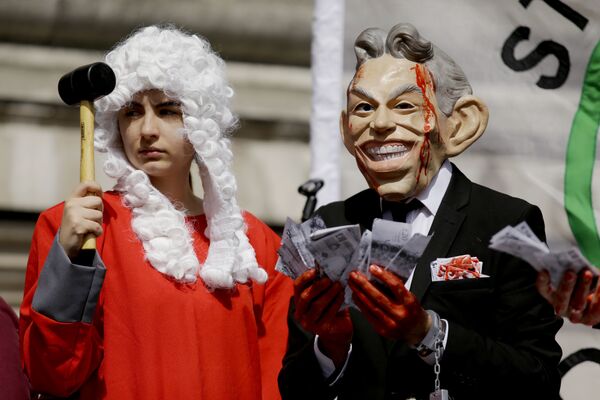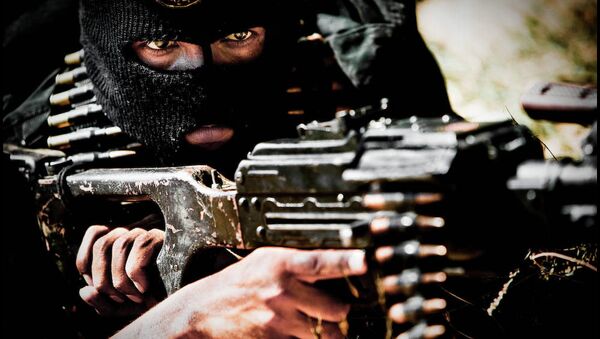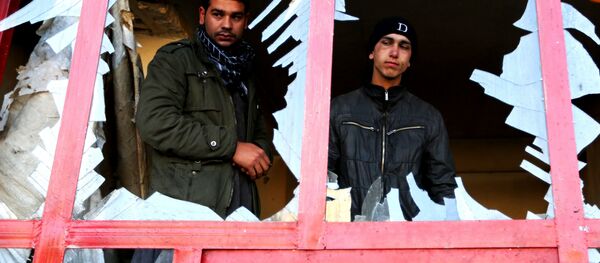The report, produced by independent, counterextremism group, the Hedayah Institute, found a number of socioeconomic "push" factors have led to extremism in southeast Asia, such as poverty, hate speech, Islamaphobia, a feeling of victimhood due to the suffering of Muslims from outside the region and "military operations by western governments in Afghanistan and Iraq."
Releasing the world’s first guide to undermine violent extremist narratives across SE Asia: https://t.co/5xjyF2DdA3 pic.twitter.com/GF1tsDxWg0
— Michael Keenan MP (@MichaelKeenanMP) August 30, 2016
The western military intervention in the Middle East and perceived injustice related to it was also seen as one of many "pull" factors for terrorists, with the report stating that many young terrorists are drawn to the search of "pure Islam," a sense of adventure and the "idealization of former fighters from Afghanistan and other conflicts."
Australian Minister @MichaelKeenanMP unveils the #CVENarratives #SouthEastAsia How-To Guide https://t.co/lj4ZXnW66E pic.twitter.com/UvXhW5WpRk
— Hedayah (@Hedayah_CVE) August 30, 2016
Fears of Southeast Asian Terror
Upon releasing the report, Australian Justice Minister Michael Keenan said between 500 and 800 people had traveled from southeast Asian countries to fight in Syria and Iraq.
This has led to fears that many currently fighting alongside groups like Daesh and al-Qaeda could return home and carry out attacks in southeast Asia.
A step-by-step approach to develop a #CVENarrative https://t.co/lj4ZXodGYc pic.twitter.com/mVINgQbprq
— Hedayah (@Hedayah_CVE) August 30, 2016
The region is no stranger to terrorism, with the popular Indonesian tourist destination of Bali rocked with terror attacks in 2002 and 2005, with members of the radical Islamist group Jemaah Islamiyah convicted of crimes in relation to the 2002 attack.
The region's strong Muslim population has also led to fears that Islamic extremists may try to radicalize locals, with the Philippines-based Abu Sayyaf group among those pledging allegiance to Daesh.
In order to combat extremism in southeast Asia, the report said correcting false claims made by jihadist groups would help, along with even "poking fun at [extremists'] objectives, aims, tactics or beliefs."
The report also stated that former terrorists and the families of radicalized people were key in the fight against terrorism in the region.
Western Intervention in Middle East Seen as Key Factor
The Hedayah Institute's findings draw a direct link between the impacts the two US-led military interventions in Afghanistan and Iraq had on global extremism, providing more criticism of the actions of western governments in the wake of 9/11.
While the 2001 US-led intervention in Afghanistan, which was accompanied by the UK, Australia, Canada and Germany, worked to remove the Taliban from power, many critics have argued that the nature of the conflict and its huge civilian casualty toll has created many more problems, not just in the Afghanistan, but also in the wider Islamic world.
Despite withdrawing active fighting troops from the country, western military forces still remain in Afghanistan, with fears local forces are not strong enough to repel a resurgent Taliban, who have taken control of some parts of the country.
Perhaps, more scathing is the global assessment on the Iraq invasion of 2003, which saw the US, UK, Australia and Poland invade Iraq, despite having no international mandate to do so.

Campaigners have called for leaders of the invading countries to face war crimes trials, while former British Prime Minister Tony Blair was heavily criticized in the recently released Chilcot report, which was scathing of the British government's actions leading up to the invasion.
While estimates vary wildly, it has been suggested that around half a million Iraqi civilians died in the Iraq War, with critics arguing this directly led to the strengthening of jihadists groups such as Daesh, which in turn has fueled the ongoing war in Syria and Iraq.





